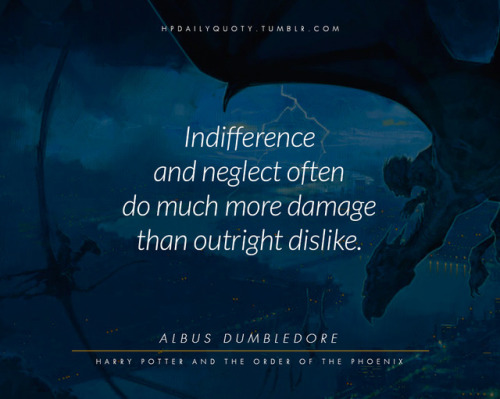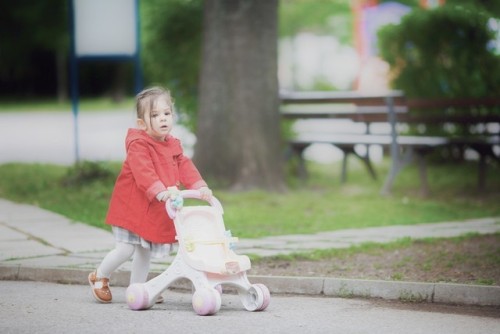#neglect
recently found out people take pain medication for like, “normal” pain. My mom never gave us medicine for anything, a lot of us have had fevers around 103 degrees multiple times and APPARENTLY you’re supposed to take medication for that!????
I was complaining about cramps and my coworker was like “why don’t u just take pain relievers” and I was like wh a t you don’t take meds for this but then I talked to my friend and !! apparently you do!!!!!! Apparently it’s not normal to just wait out being sick and in pain!! Apparently it’s not normal to never take medication for any pain no matter how dizzy it makes you, or how hard it is to stand, or how bad your stomach hurts. Apparently it’s not normal to just “tough out” nausea!!
When I was too sick to go leave the house, I stayed home, but I never got pain meds except for when they were prescribed for a broke arm. THATS what I thought they were for, pain that was “bad” enough that you’d get a doctor to tell you to take meds for it. Not for throwing up or fevers or colds or headaches or stomach pain so bad it makes you curl up in a ball or anything!! And I thought it was normal!! GOD my parents suck.
Three years ago I made a video on Overcoming Childhood Emotional Neglect (see link below). Since I released that video, it has received over 6,600 comments! With all of these comments and questions, I decided to make a follow-up video to further talk about some of these themes. Want another video like this?
Overcoming Childhood Emotional Neglect: https://www.youtube.com/watch?v=HtDIFA5KhWo&t=315s
a lot of children - especially mentally ill children - end up traumatized not because someone was specifically hurting them but because their needs weren’t being met, or because their problems weren’t being seen, or because they were rendered particularly vulnerable by other aspects of their identity, like queerness or race.
and it can be hard to look at your childhood and go “I was hurt” and also know that the hurt wasn’t deliberate. it’s uniquely painful to not have someone to blame.
you do not have to excuse the people who hurt you, even if it was unintentional. & acknowledging your own pain does not necessarily entail blaming them for it.
you are allowed to do what you need to do in order to recover.
Also:
“they did the best they could/with what they had” and “it wasn’t (good) enough” are two things that can and must be true at the same time
.
This is a very real and legit type of trauma called Trauma B, which in short means that you weren’t given the things that you needed to survive and thrive, and I believe that it’s the culprit for way to many things and we need to understand and talk about it more.
(Trauma A is the type where something happens to you)
Trauma B is something I will have to look into.
@punkinspice seems to have got the two mixed up - type A trauma is the one caused by things such as neglect, and type B is caused by traumatic events. here’s a good article on it: https://www.teenrehab.org/resources/helping-your-teen/type-a-type-b-trauma/
(contains a picture of the aftermath of a car accident, a cheesy stock photo depicting vague domestic violence, and naturally mentions of other events that cause and result from trauma).
there’s plenty more articles on google if you just search up the terms.
if you’re reading this, you’re probably like us- stuck in an abusive and/or neglectful household for seemingly an endless amount of time, feeling trapped and like you’ll never get out. well, good news! you’ll get out eventually! and until you do, we have some tips to help you through it. it sucks, I know, but we’ll all get through it together, yeah?
these are all from a variety of sources and have been compiled over years of research. some may be outdated or may not work due to various reasons [changes in how appliances work, your abusers’ behavior, the resources you have available to you, etc]. however, there are enough tips here that I hope at least one will be of use to one of you out there. please reblog and share if you can!
General/Other:
- Check “college life hack” blogs/channels/etc, specifically the ones about living on campus. Usually they’re all about saving money or doing things without roommates knowing, which can be extremely useful.
- Take advantage of any opportunities you might get. Your parents bought a bulk pack of granola bars? Take a few. You missed your bus and have to walk home? Stop by a store on the way to pick up food or essentials. You get the idea.
- This may sound obvious, but don’t provoke your abusers intentionally. This especially goes for all you avenger alters out there [you know who you are], but it goes for everyone else too. Don’t test your boundaries unless it’s absolutely necessary. If you know something’s gonna piss off your abusers, don’t do it. This isn’t to say them abusing you is your fault- nothing like that. But we’re trying to avoid being abused as much as possible. I know it’s tempting to do things to piss them off or get back at them, but for your safety and the safety of others, don’t do it.
Health/Hygiene:
- Stock up on any medication you might need. After you get out, you might not be able to afford medication for a while, so it’s important to have a supply on hand. Stashing meds can help with this. I recommend stashing one extra per night if you take a lot of the medication, and one every other night if you only take a little bit (ex: if you take four pills per night, take an extra one to stash every night, and if you only take two, then take one every other night). Just make sure you label their expiration dates, and if the expiration date gets close, then you should restock your stash.
- If at any point your parents threaten to take you off your medication and you know they’re serious about it, wean yourself off. Never quit any medication cold turkey unless you’re on a low enough dose. This especially goes for antidepressants and anticonvulsants. Search up the recommended amount per week to take off and follow that. It sucks, but it’s necessary. And if they don’t follow through, then you can build back up to your regular dose again.
- Maintain proper hygiene as well as you can. This is especially important if you will be put in danger if anyone suspects you’re in an unsafe household. This might mean having to take showers at school, buzzing your hair to avoid having to wash it, wearing beanies to hide grease or dandruff, washing your hair in the sink, taking sponge or washcloth baths, only brushing your teeth at school or every few days, hiding hygiene products in your locker or somewhere else (I recommend your gym locker, if you have one- easier to explain that you’re just cleaning up after gym class), or anything else you might need to do to keep yourself safe and healthy while also maintaining your cover. This can also help you in getting a job, if you’re able to get one.
- If you menstruate, ask around at school or work for sanitary products. I recommend before gym class or during lunch- those tend to be the best times. Tampons are more discreet, but can’t really be worn safely overnight, so make sure you have both tampons and pads. If you can, get a menstrual cup. They’re easy to clean (wash under hot water or boil them), last a long time, and are reusable.
- If you have no access to sanitary products, a sock or rags wrapped in several layers of toilet paper will work. For heavy flows, use two socks. You can use baking soda to get the blood out later.
- If you need toilet paper, steal from public bathrooms or porta potties.
- Check those “life hack” YouTube channels, subreddits, profiles, tumblr blogs, whatever. Sometimes they’ll have useful information. The porta potty tip actually came from a CinemaSins video, and the menstrual tips come from various beauty bloggers. I really recommend https://useful-adulting-shit.tumblr.com/ , they’re a fantastic resource. you can sometimes find gems on there.
Cleaning/Generally flying under the radar:
- If you need to throw something out and don’t want your abusers to see, throw it out in a neighbor’s trash can, preferably one that’s half-full, or on garbage pickup day. This worked wonders for us anytime we had to throw out food wrappers we had hidden in our room. If you can’t do that, throw it out as far away from your house as possible. If there’s no garbage can, you’re gonna have to litter. Say your apologies to the environment now and hope someone with a generous soul comes by later to clean it up. I had to throw out the packaging to a pack of pacifiers out in a Target parking lot after I bought some for our little and realized I had no way to dispose of the packaging before getting home. At the end of the day, your carbon footprint is literally not going to matter. Sometimes you might have to litter. Throwing one or two pieces of trash into the bushes is better than being beaten or yelled at for hours.
- Stuff towels in the cracks of your door to muffle noises.
- Lost and founds are a gift from god himself. Take full fucking advantage of them. You can get free clothing, shoes, or sometimes even water bottles if you’re lucky. It’s especially useful during the winter. We didn’t have to use ours as much (our body basically never grows, so we never grow out of our clothing), but they could be very useful. You can usually find lost and founds in schools, churches, and basically any work building. If you can help it, try not to take anything sentimental, but sometimes you might need to.
- Steam from the shower can work as a makeshift iron. If you’re able to, take a longer-than-usual shower and hang up your clothes somewhere in the bathroom. Make sure you close the door all the way [or at least most of the way] and leave them hanging while you take your shower. Is it perfect? No. Does it work? Yes.
- Baking soda can help remove stains from fabric or carpet, specifically blood stains, or just stains in general. You can also use regular dawn dish soap, or any kind of soap that you have on hand. Just make sure to keep the stained area wet until you’re able to get the stain out. This has worked to get so many paint and blood stains out of our carpet and clothes, I can’t tell you how many rounds of shouting we’ve avoided just by keeping the carpet wet and scrubbing it over and over with dawn dish soap.
Food/Food Storage/Dishes:
- Store non-perishable foods in various places, and constantly change your hiding spots. Cans are only useful if you have access to a can opener or if the cans don’t require one to open. Crackers and granola bars are riskier because of the noise and all the crumbs, but they can be bought in bulk, so if you can get away with it, buy them. There’s advantages to big containers and individually wrapped packages. If you buy bulk, it’s easier to hide the noise and they last longer, but they’re harder to move and hide. Individually wrapped packages might be harder to hide the evidence of and could be louder, but they’re easier to hide in various places. We recommend keeping bulk containers of things like peanut butter and applesauce, and having individual packages of things that could go stale, such as crackers or chips.
- Eat food under your blankets, and clean up any crumbs you make. Bugs are the worst.
- If you can, have your friends ship or give you food. Our friend ordered three packages of food to our house once, and our parents luckily didn’t really care- they only questioned us once and then shrugged it off. It’s a great way to have a sure supply of food.
- In a similar vein, take advantage of any and all free food you can get. Free samples. Free lunches or breakfasts, if your school offers them. Church breakfasts are another big one, as well as food pantries and food drives. Stop by a few churches every so often to see if they’re doing one. What we do is get our school’s free lunch every day, store what we can in our locker or our backpack, and eat the rest of it for lunch. Before they tracked our pin numbers, we’d first wear a sweatshirt with the hood up, then we’d take off our sweatshirt and go in again. We’d give the extra perishable food to our friends so it didn’t go to waste.
- As long as they don’t have eggs (or are pre-cooked), you can eat noodles raw. You don’t need to cook them. And you can buy most noodles in bulk as well. As long as you can hide the noise, they’re a very good source of food.
- If you need to wash any dishes, wash them in a bathroom, or use a wet rag if you don’t have access to one. If you can wash them in the bathroom, wash them while you’re taking a shower. If you need to sneak them downstairs, do it while everyone’s asleep, not home, or when you find an opportunity. For the damp rags, wet one with water and dish soap, and another with just water. Even just scrubbing away the grime a little bit is better than not washing them at all.
- If you can’t get away with washing dishes, try layering plastic wrap on top of plates or bowls. This means you can crumple up the dirty plastic wrap and throw it away right after. If you don’t have access to plastic wrap, a napkin, parchment paper, or any kind of paper will work as long as the food isn’t too greasy or wet.
- You can use an iron to cook some types of foods [like pizza and grilled cheese]. This might work better if your parents don’t tend to notice things, or if you don’t have access to a stove or oven.
- Similarly, you can use the hot water from your sink to heat up certain foods or liquids. Put it in a plastic container, set the faucet to the highest setting, and run the container under the tap until it’s heated. It’s a good way to heat up canned soups if you have access to them, and it’s less noisy than a microwave.
- If you have access to an electric kettle, you can use that to quickly and easily boil specific amounts of water. It’s relatively quiet- much quieter than a regular kettle or a microwave- and there’s no risk of it boiling over like there would be on a stove. You can use this to cook all kinds of soups, noodles, and pastas.
- You’d be surprised how many stores actually sell food. You don’t need to go to a grocery store or Walmart to get access to food- a pharmacy, Ikea, Christmas Tree Shop, ACMoore, the dollar store, 5Below, Goodwill, or basically anything that isn’t the bank or an expensive restaurant are good places to find food. We have a pharmacy that’s about a half hour walk from our house, and we usually go every few weeks to replenish our food supply. Shitty food is better than no food. Just make sure you don’t buy canned food or produce from the dollar store, and you’ll be good.
Money-Related:
- Steal whatever you can get away with. Literally anything. If it isn’t useful to you, there’s a chance you can sell it to make money. That’s what we did- we took money, food, sewing and medical supplies, toys, games, tools, anything we could get away with. We sold everything that wasn’t useful to us, and our parents never found out- they thought we were shipping packages to our friends. We made over $250 in one summer just from reselling things that our parents had in storage for years and never noticed went missing.
- Save every coin you get, no matter how small. They add up quickly, and you can exchange coins for paper money. If you steal money from your abusers, make sure it’s an unnoticeable amount, and only take a few coins at a time- we usually took a maximum of two coins per night from our mom’s purse, but some rates could be much higher or lower depending on how closely they watch their change. Don’t take quarters or paper dollars unless there’s a lot of them- they’re extremely noticeable.
- There’s a few other ways to get money as well. Check drains and streets/sidewalks and parking lots when you walk around outside. Fountains, especially at public gardens, are a really good place, just make sure there’s no workers or cameras watching you and you’re set. You can also check outside stores or stands for dropped change, though be careful because shops might not allow loiterers. You can also try just asking people for a couple cents- one thing that tends to work is to lie and say you just need five or six more cents to buy a sandwich/water bottle/whatever is relevant or comes to mind. It’s scummy, sure, but at the end of the day, you’re the one who needs to get out of your house as quickly as possible.
- Get a job if you can, even if it’s unconventional. If you can, go door to door and ask to walk dogs, mow lawns, weed gardens, wash cars, babysit, anything for an extra few bucks. Sell stuff on Instagram. If you can, get an actual job. This might not be an option for most of you, but if you can get one, you’re able to open up a ton of new opportunities for yourself.
- Use PayPal for all your online purchases. There’s a way you can go through PayPal and make it so your online purchases don’t show any specifics, only that you spent X amount of money through PayPal, which is of course super helpful when you have nosy parents.
- If you’re able to get a debit card, make sure you DO NOT USE IT TO BUY STUFF OFFLINE. It is very traceable. Your abusers will be able to see what you are purchasing. Instead, go to the bank or an ATM and withdraw cash. Cash is the only 100% non-traceable form of currency. If you’re old enough, try to get a credit card. They’re only traceable to whoever has access to your bank account.
=-=-=-=-=-= I’ll make a similar post soon about what to do if your friend/loved one is in an abusive household. Yes, a lot of these tips are very scummy and some involve being a less than decent member of society, but at the end of the day, you’re not the bad person in this situation. You’re doing what you need to do to survive. You’re in horrible, horrible circumstances that no person should ever have to be in. Sometimes you have to be a little scummy in order to survive and make it out in one piece.
We spent a lot of time on this post, I hope this helps at least one person. Thanks for reading <3
=-= Karl [most tips written by Luke & Techno]
It just pisses me off that my parents purposely screwed me over, never teaching me any valuable life skills & abusing & neglecting me until I was scared of everything, all because they wanted a perfectly obedient live-in servant. And when I finally started to advocate for myself, they realized they’d failed and tried to kill me.
There are a lot of reasons I was drawn to A Series of Unfortunate Events as a kid, and if I wanted to try and analyze them all I would have to write an entire anthology of books about the series and me and psychology and by the end of the day I would be very tired and you all would be very bored, so I’m not going to do that, but when I think about the series and probably the main reason why I’ve stuck with the series so long as a kid and now as a quasi-adult, what stands out to me is the beautiful way that Daniel Handler writes, portrays and deals with abuse.
There are a lot of messages that the series conveys across its thirteen volumes and even more in the companion pieces Handler has authored, but almost all of them come back to deal with abuse in some way, particularly child abuse. Even beyond just roundabout lessons that can be applied to child abuse, it actually depicts and deals with child abuse, a topic that is virtually nonexistent in middle grade literature even now as we start to become more aware of the topic. Children with harrowing backgrounds are common in the genre, but the difference between the Baudelaires and Harry Potter is that Snicket makes it very clear that what is happening to the Baudelaires is abuse and is wrong, whereas the Harry Potter series dismisses Harry being forced to live under the stairs as simply mean guardians and an abusive school teacher as a romantic pining for his lost love (don’t get me started on Snape discourse). A Series of Unfortunate Events tells children up front that abuse does happen and that that is what it is - abuse.
It showcases dozens of different varieties of abuse, physical, emotional, neglect, and it even hints at sexual with Olaf’s predatory behavior towards Violet. It shows different kinds of abusers, Mr. Poe, who does it out of genuine ignorance and an unwillingness to learn, and Count Olaf, who does it out of cruelty.
More than showing child abuse, it shows how people react to child abuse, either through internalizing it and believing that they are deserving of their fate, withdrawing from other people, or becoming distrusting of any and all adults to the point that they might miss out on people who could have possibly saved them if they had just trusted them. A Series of Unfortunate Events presents trauma in an accurate, non-sugar coated way to the audience that most needs to hear it.
As a seven year-old kid living with abusive parents, at the time I didn’t know why I loved A Series of Unfortunate Events so much, but I knew I loved it in a way I had never loved or related to a book before, and more than a decade later it still has a dramatic impact on my life. I was a cynic from a young age, and there’s something just draining about reading story after story of quick fixes and happy endings and stories where things go right when your life never seems to go right. I loved A Series of Unfortunate Events because the things that were happening to the Baudelaires, even though they took place in a fictional universe, were real. Handler never tried to pretend that life was great because it isn’t and if you’re a kid who has been taught by literature over and over that life is supposed to be great all the time and it’s great for everyone except you, that messes you up. A Series of Unfortunate Events told me it was okay to be messed up, and it told me that other people are messed up too, and the world is just as imperfect for everyone else as it was for me.
#DisabilityDayOfMourning - Today we remember our disability kin killed by their parents/family/guardians because they’re seen as a “burden” or to “release them”. That’s murder & too often there’s no justice. But I would also like to ask people to be aware of caregiver-neglect. And yes, caregiver-neglect often means parents & loved ones too. This is what nearly killed me & I didn’t say anything because I felt trapped & didn’t see a way out. Until my sister gave me one. But if she hadn’t noticed I needed help, I never would have said anything. I thought living with my mom* was my only choice, that she was the only person willing to take care of me. & that I had to live with neglect & abuse as it slowly killed me because I had no resources to get out & didn’t know where to turn.
If you see a disabled person in a bad situation, talk to them, offer to help them find resources. (Please don’t just call protective services - that’s stepping on their autonomy & could make the situation worse. Only report it if the disabled person is unable to communicate their wishes to you through some form of communication) - Otherwise you can talk to us, ask us what we need, help us get it. Show us there are options, that we don’t have to live with an abuser & be neglected to death.
Because sometimes they kill us outright, but other times it’s slow & torturous - while we too often listen to people around us say what a saint our caregiver is for carrying the burden of us & it makes us feel like there is no one we can turn to, to say “I think I’m dying. I think they’re killing me.”
Remember us today, help us every day.
-
*the fact that my mom was mentally & physically ill herself doesn’t change that I suffered & nearly died. It might not have been 100% her fault, but I still suffer the c-ptsd from it everyday.
You deserve the love and kindness you give to everyone else.
“How’s it feel?
How’s it feel to be so loved?
How’s it feel to be so loved, yet so alone?”
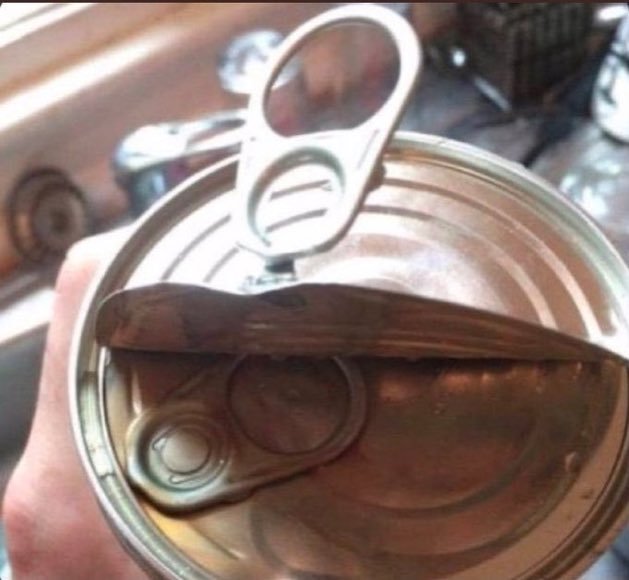
When someone tries to get me to open up
i didn’t know!!!

Today we remember disabled people who were murdered by their families for being a burden. Don’t let anyone tell you it’s an act of kindness. It’s murder without justice. And in these past few years, where the refrain has been “…yeah, but only people with underlying health conditions, right?”, as disabled people have been the victims of this virus & the neglect of those unwilling to take the barest precautions to protect us, we have far heavier hearts to carry. Not to mention the abuse & neglect that far too many disabled, chronically ill & neurodiverse people suffer at the hands of their caregivers - & yes, that includes family & loved ones. I’m asking you to take the time to look through the #DisabilityDayOfMourning tag, to search it on the internet and read what people have to say. And to think about what you would do if someone you know was murdered by a loved one simply for being disabled. Today we mourn, tomorrow we fight on.
#DisabilityDayOfMourning - Today we remember our disability kin killed by their parents/family/guardians because they’re seen as a “burden” or to “release them”. That’s murder & too often there’s no justice. But I would also like to ask people to be aware of caregiver-neglect. And yes, caregiver-neglect often means parents & loved ones too. This is what nearly killed me & I didn’t say anything because I felt trapped & didn’t see a way out. Until my sister gave me one. But if she hadn’t noticed I needed help, I never would have said anything. I thought living with my mom* was my only choice, that she was the only person willing to take care of me. & that I had to live with neglect & abuse as it slowly killed me because I had no resources to get out & didn’t know where to turn.
If you see a disabled person in a bad situation, talk to them, offer to help them find resources. (Please don’t just call protective services - that’s stepping on their autonomy & could make the situation worse. Only report it if the disabled person is unable to communicate their wishes to you through some form of communication) - Otherwise you can talk to us, ask us what we need, help us get it. Show us there are options, that we don’t have to live with an abuser & be neglected to death.
Because sometimes they kill us outright, but other times it’s slow & torturous - while we too often listen to people around us say what a saint our caregiver is for carrying the burden of us & it makes us feel like there is no one we can turn to, to say “I think I’m dying. I think they’re killing me.”
Remember us today, help us every day.
-
*the fact that my mom was mentally & physically ill herself doesn’t change that I suffered & nearly died. It might not have been 100% her fault, but I still suffer the c-ptsd from it everyday.
DAY 9 - NEGLECTED
Before they joined Hell’s Circus Amra and Palla “worked” at a freak show that heavily neglected them and also whipped them, Palla got all the scars on her back while protecting Amra.
Angstober prompts by @birdiiielle
Post link
I still have nightmares about it. I still can’t go back to sleep afterwards.
When Kids Have to Act Like Parents, It Affects Them for Life
“I spent a lot of time babysitting [my siblings] as a teenager and I think it’s been a challenge for me to separate out feeling like I’m a parent to them.”
This has often caused rifts between the siblings into adulthood, Rosenfeld says. “I’ve always been somebody who thinks it’s my job to offer help, care, and advice even when it’s not asked for.”
How does someone learn that becoming self-reliant is safer than trusting others? Nakazawa believes that in destructive parentification, “you don’t have a reliable adult to turn to.” And if a child’s early experiences at home consisted of making sure everyone else’s needs were met, then the “child doesn’t feel seen.
This sense of responsibility and compulsive caretaking can follow them into future relationships as well. “You tend to project it onto other people in your life,” Rosenfeld says. This isn’t surprising, claims Jenny Macfie, an associate director of clinical training at the University of Tennessee and another prominent parentification researcher, as “adults who report role confusion in their childhoods may have difficulty with their identity development,” and this in turn, can affect a person’s romantic relationships.
We’re only beginning to understand the interplay between sibling dynamics, parental neglect, and health outcomes later in life. We need to see more research on prevention and treatment options.
Post link
Let’s talk about the 2nd Edition (while my hair dries)
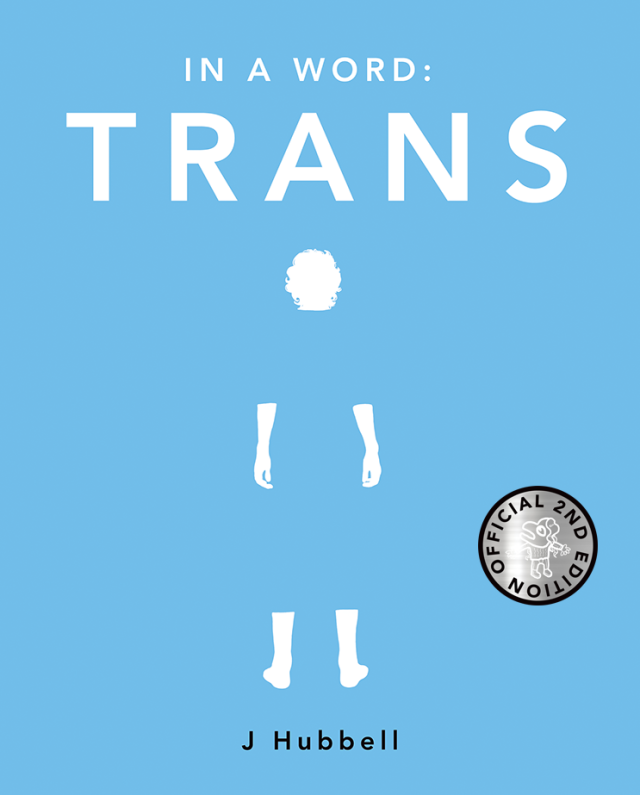 ALT
ALTWhen I started work on a collection of my comics it was really important to narrate my process with new work.
I wanted the book to be universal and very easy for any reader, so these new comics/pages are VERY cute:
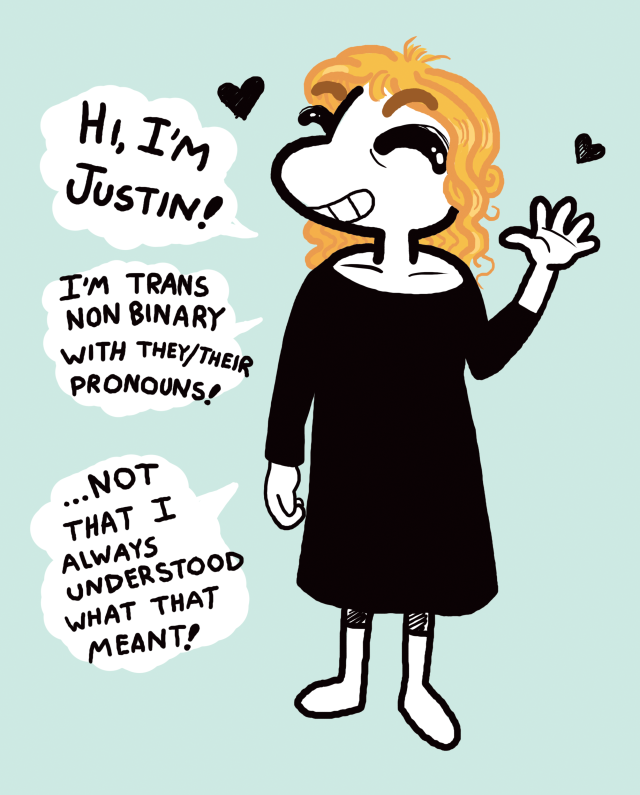 ALT
ALTI refer to this chibi version of myself as “Dollface Justin.” I was forced to adopt this simpler style after a fairly severe injury that upturned my life for about three years.
I am a MUCH better cartoonist now.

In the 2nd edition I’d work to make my narration as interesting (if not more so) than the collection itself.
A 2nd edition would showcase (easily) 3x the comics in the 1st edition. It may also ruffle some feathers.
While the 1st edition might be considered “candy coated,” I would make a point of speaking up about how Trans people are treated and how—seriously—we’ve suffered enough!

And besides that, for every comic of mine you’ve seen? There’s about ten more you’ve never seen. I intend to COMB my work and showcase VERY personal art.
It will be me at my most vulnerable and I am happy to do this if it helps someone. And I know it will. I know this.




